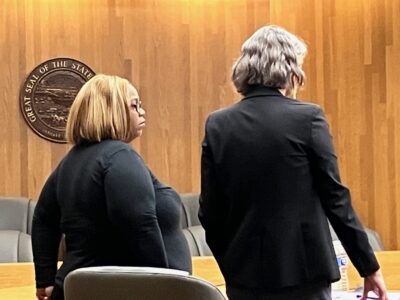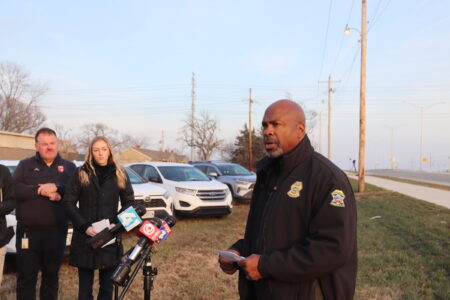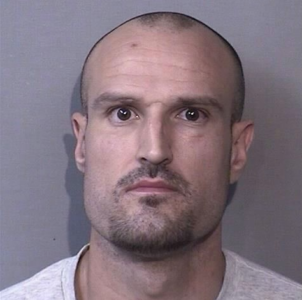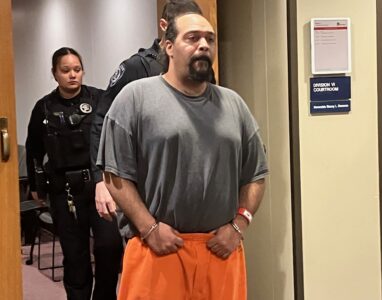Fireworks sales to be allowed year-round from permanent Kansas retailers, seasonal retailer sales extended

photo by: Elvyn Jones/Journal-World File Photo
Fireworks fill the sky above Baldwin City in this file photo from July 4, 2013.
Access to fireworks in Kansas just got a lot easier with the legislature approving a measure providing for year-round sales from permanent retailers and an extended seasonal retail time frame.
Governor Laura Kelly signed the measure, SB 199, into law on April 8, setting parameters for new firework sale time frames as well as requiring retailers to register with the Kansas Fire Marshal.
The bill allows fireworks retailers with a permanent structure to operate year-round and extends seasonal sales to begin as early as June 20 until July 7, a week longer than previously allowed. Neighboring states like Missouri already allow retailers to operate year-round, and it has been doing so since 1996. The law requires these businesses to run from permanent buildings that meet local building and fire safety rules, helping keep fireworks sales safe and well-regulated.
Wally Roberts, chief of investigations at the Office of the State Fire Marshal, said there hasn’t been much interest so far from year-round retailers, but if someone wishes to sell fireworks year-round, they have to apply to their office.
“We’ll be going out, making inspections of the property, making sure that all the fire code and life safety systems are current and up to date and working properly, looking at the storage of the fireworks and things like that,” Roberts said.
The State Fire Marshal’s Office neither opposed nor supported the change but filed written testimony explaining that these changes will affect the costs that the state would incur with increased enforcement of inspections, potential fire incidents, and new registrations.
Health care providers in Kansas are asked to report firework-related injuries to the State Fire Marshal’s office. In 2024, there were a total of 142 injuries involving fireworks, with more than half of the reported injuries occurring on the 4th of July and more than half of the individuals received burns.
Lance Feyh, the public information officer at the Office of the State Fire Marshal, said right now, there are no plans to see if the number of injuries will increase or decrease with the new parameters, but to see as time goes on.
“I would suspect that if there was this huge increase, legislatures would potentially reconsider where we’re at,” Feyh said.
According to the testimony from the Fire Marshal’s Office, consumer fireworks are estimated to cause 2,000 structure fires, 500 vehicle fires, and nearly 20,000 wildfires annually in the United States. However, the testimony said the office does not have reliable statistics to share about the impact of fireworks on the state’s fire departments and the insurance industry in Kansas.
“I am hopeful that the National Emergency Response Information System, which will collect better data from fire departments starting in 2026, will allow us to reliably report on these impacts to our state in the future,” the testimony said.
During the fireworks sales season in 2024, staff randomly inspected 178 retail fireworks locations around the state. In 14 instances, they found that the retail location was selling consumer fireworks that had not been purchased from a distributor licensed to operate in the state. In 3 instances, the staff found and seized illegal fireworks from retailers.
The testimony also said the office currently has a single staff member who spends approximately one half of their time providing information about fireworks licensing, reviewing applications, providing written testing for operators, compiling information from inspections, and administering licenses.
The bill would both double the length of seasonal retail sales – from 9 to 18 days – and create year-round sales locations, the testimony said, and staff would need to dedicate more time to inspections and enforcement of the Fireworks Act – which regulates the sale, use, and possession of fireworks in Kansas.
Lawrence is a no-fireworks city but Douglas County and surrounding cities allow fireworks to be discharged during the July 4 holiday. The unincorporated areas of Douglas County and the city of Eudora allow fireworks to be discharged and sold from July 1-4, according to city and county regulations.
In Baldwin City, fireworks season starts on June 28 in the city, said Lynn Meador, communications director for Baldwin City. The change could be concerning in regards to fires in the area.
“Grass fires are an increasing issue every year in the spring and fall, in addition to summertime fires. Expanded access to fireworks could certainly make that worse,” Meador said.
This wasn’t the first time year-round firework sales was considered in the Kansas Legislature. It failed in the Senate in 2022, with only two senators voting in favor. The measure lost support after an amendment was added requiring counties to opt in to permit fireworks sales, raising concerns it could effectively lead to local bans and disrupt existing businesses, the Kansas Reflector reported.
By 2025, legislators removed the opt-in provision, expanded the seasonal sales window slightly, and added safeguards such as mandatory registration with the state fire marshal and a ban on internet sales, which may explain why it was more favorable this legislative session.
Selling fireworks in Baldwin requires a $200 registration fee and a permit approval by June 1. In Eudora, fireworks sales are only permitted by non-profit organizations. A permit in the unincorporated Douglas County area costs $100 and must be applied for by June 7.
Feyh said the sale of fireworks year-round does not necessarily equate to year-round use, and cities generally determine the specific rules and days for when fireworks can be shot off.
“You can’t just go out and buy fireworks and start shooting them off anytime of the day or anytime of the week,” Feyh said. “(There) are still going to be limitations by the local jurisdiction.”
The Journal-World reached out about the change in laws to the Lawrence-Douglas County Fire and Medical Department, and to Consolidated Fire District 1 in rural Douglas County, but did not get any responses.







